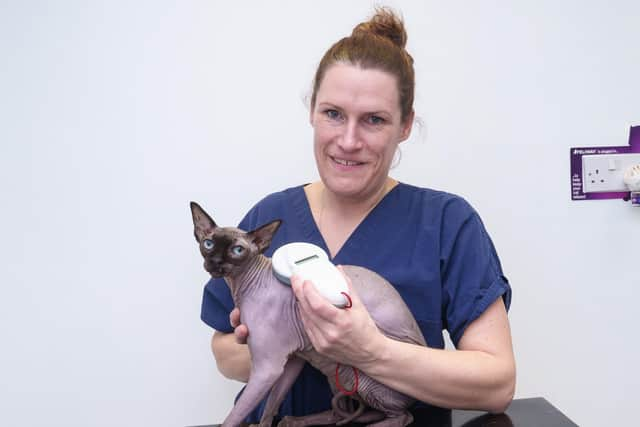Lancaster vets welcome new law for compulsory microchipping of cats
and live on Freeview channel 276
Preparations are under way for the introduction of compulsory cat microchipping in England under the Action Plan for Animal Welfare, making it easier for lost or stray pet cats to be reunited with their owners and returned home safely.
Under the new plans, all keepers must ensure their pet is microchipped before they reach the age of 20 weeks and their contact details stored and kept up to date in a pet microchip database.
Advertisement
Hide AdAdvertisement
Hide AdOwners found not to have microchipped their cat will have 21 days to have one implanted or may face a fine of up to £500. This new legislation will begin on June 10 2024.


Lancaster Vets has welcomed the move and believe it will spare cat owners the heartache and worry if their pet goes missing, as well as improve cat welfare with fewer strays abandoned on the streets.
The simple procedure involves inserting a small chip with a unique serial number under a cat’s skin. This number can be read by a scanner and checked against a microchip database to help reunite lost, injured or stolen pets quicker with their registered keeper.
Helen Griffin, clinical director at Lancaster Vets in Bowerham Road, said: “Cats are much-loved parts of our families and making sure that they’re microchipped is the best possible way to reunite them with their owners if they are ever lost, injured or stolen.
Advertisement
Hide AdAdvertisement
Hide Ad“Losing a cat can be so distressing but, if they are chipped, then there is a better chance their owners can be traced, as long as they keep contact details up to date on the database. Microchips are safe, easy to implant and effective. Unlike collars and ID tags, they don’t come off and they don’t put your cat at risk of injury.
“The easiest time to do this is when cats are booked in for neutering at 20 weeks and are anaesthetised so we would encourage owners to discuss both options – neutering and microchipping - with their vet.”